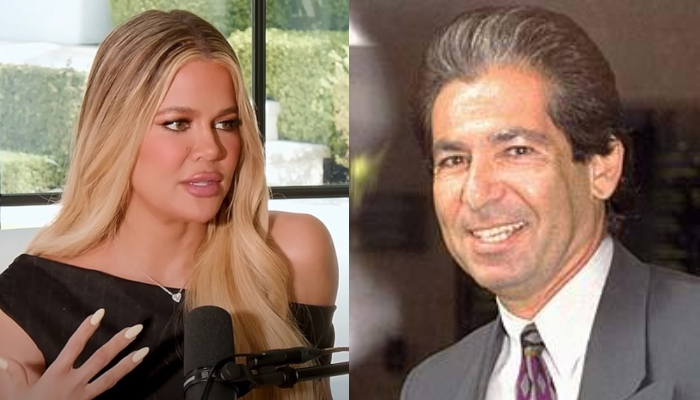
Khloé Kardashian is getting real about one of the toughest moments she’s faced in front of the cameras — and how it unexpectedly led to a big emotional breakthrough.
The Kardashians star, now 40, opened up on her podcast Khloé in Wonderland about being pushed to talk about her late father, Robert Kardashian, during the first season of Keeping Up with the Kardashians — something she definitely wasn’t ready for at the time.
Talking with grief expert and Grief.com founder David Kessler, Khloé shared, “For about three years, I was incredibly angry,” reflecting on the emotional rollercoaster she was riding after losing her dad.
Robert Kardashian, the famous attorney who defended O.J. Simpson, passed away from esophageal cancer in 2003 when Khloé was just 19 years old.
So when KUWTK hit TV screens in 2007, the wound was still pretty fresh.
“I was filming my show, Keeping Up with the Kardashians, and in season one, I remember one of my producers was making me do an interview about my dad ‘cause I wouldn’t talk about my dad,” Khloé revealed.
“At that time, if I spoke about him, I would just break down.”
In fact, in episode five, the then-24-year-old got so emotional during a confessional that she had to walk out. And honestly, who could blame her?
But despite feeling like she was being dragged through it kicking and screaming, Khloé now says it was a turning point she didn’t even know she needed.
“It was as if a house got lifted off of me after that conversation,” she admitted. “I was kicking and screaming while doing it, but as soon as I had that conversation, that was the last time that I cried when talking about my dad, in a bad way.”
These days, Khloé says she’s made peace with her father’s passing.
“I let go of all of this guilt and anger. Now I can talk about my dad with smiles and happiness and admiration and understanding,” she said, noting that becoming a parent herself has given her even deeper insight into that bond.
Speaking about the producer’s push to get Khloé to open up on camera, Kessler gently added, “I say people need to do this in their own time, in their own way, so I wish you would have had more choice in that,” but he also acknowledged the strange way the situation turned out.
“Somehow the camera, the audience, became a safe place for you to talk.”
Source link








